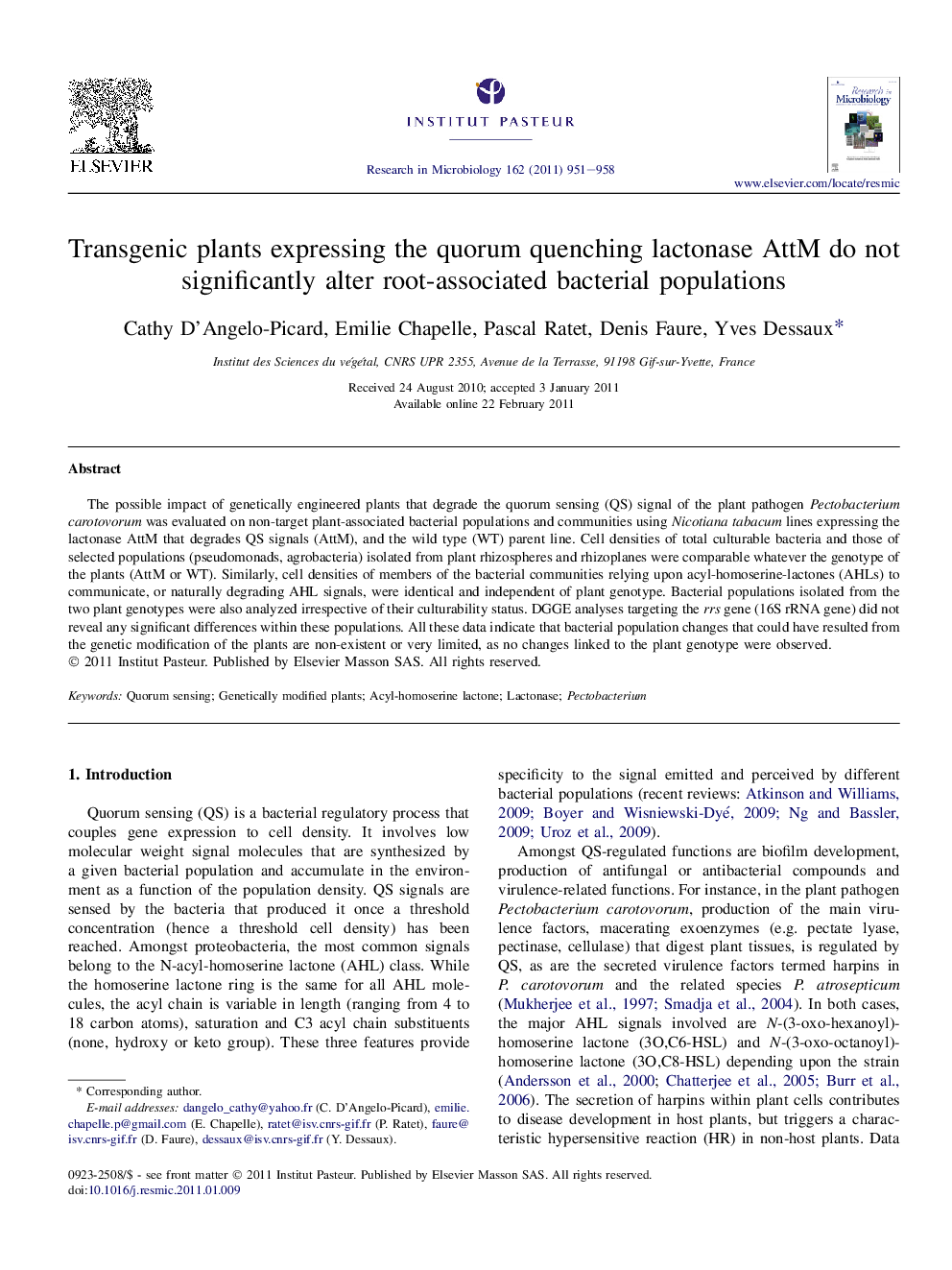| Article ID | Journal | Published Year | Pages | File Type |
|---|---|---|---|---|
| 4359002 | Research in Microbiology | 2011 | 8 Pages |
Abstract
The possible impact of genetically engineered plants that degrade the quorum sensing (QS) signal of the plant pathogen Pectobacterium carotovorum was evaluated on non-target plant-associated bacterial populations and communities using Nicotiana tabacum lines expressing the lactonase AttM that degrades QS signals (AttM), and the wild type (WT) parent line. Cell densities of total culturable bacteria and those of selected populations (pseudomonads, agrobacteria) isolated from plant rhizospheres and rhizoplanes were comparable whatever the genotype of the plants (AttM or WT). Similarly, cell densities of members of the bacterial communities relying upon acyl-homoserine-lactones (AHLs) to communicate, or naturally degrading AHL signals, were identical and independent of plant genotype. Bacterial populations isolated from the two plant genotypes were also analyzed irrespective of their culturability status. DGGE analyses targeting the rrs gene (16S rRNA gene) did not reveal any significant differences within these populations. All these data indicate that bacterial population changes that could have resulted from the genetic modification of the plants are non-existent or very limited, as no changes linked to the plant genotype were observed.
Related Topics
Life Sciences
Immunology and Microbiology
Applied Microbiology and Biotechnology
Authors
Cathy D'Angelo-Picard, Emilie Chapelle, Pascal Ratet, Denis Faure, Yves Dessaux,
